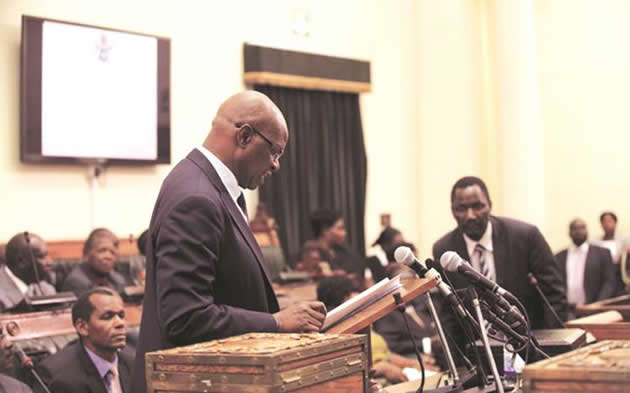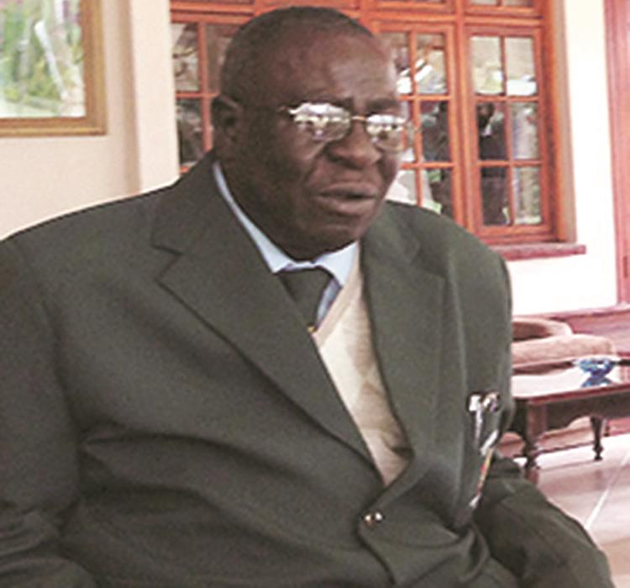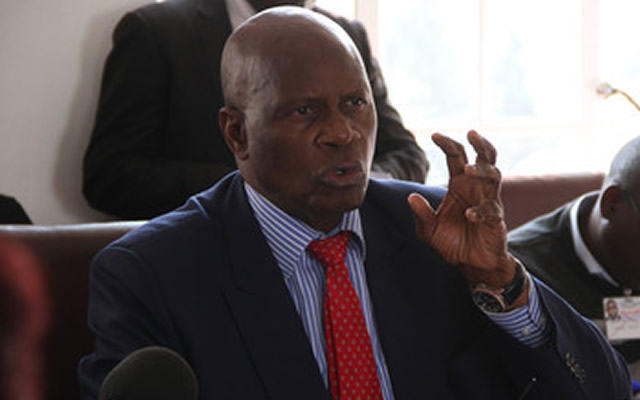SPB Act crying out for urgent overhaul


BREATHING FIRE . . . Minister Chinamasa did not mince his words when he said: “When you talk about corruption, be it in Government or the private sector, first look at the procurement system. This is the capital city of corruption.
Lloyd Gumbo Mr Speaker Sir
“When it comes to tenders, something which I have noticed and which worries me, is the dominance of briefcase businesses in the tender system,” charged Finance and Economic Development Minister Patrick Chinamasa on Wednesday while officially opening a Buy Zimbabwe procurement conference in Harare.
“People come to bid yet they do not own anything and, say it is a tender for soap, you will find out they do not have a factory but they are the people who get the tender. The next thing after winning the tender they go to the people who make soap. By so doing the cost structure is different.
“We have to do due diligence on those who tender and find out where they are going to find their supplies. We have to enhance the public procurement legislation and governance structures to minimise distortions, that is, the role of middlemen and collusion (with SPB) that increases the cost of doing business and also reach out to a broader supplier base.”
He added: “When you talk about corruption, be it in Government or the private sector, first look at the procurement system. This is the capital city of corruption.
“Public procurement systems are strategic tools that can either make or destroy a country. They are central to economic value chains and it is the procurement function that can normalise or distort the cost structure in an economic system.”
Mr Speaker Sir, the problem with our procurement system is that so much focus has been dedicated on the branches of corruption instead of the root cause.
Our MPs have on several occasions summoned board members from the State Procurement Board and expressed dissatisfaction with the way officials conduct themselves.
State entities have also complained that their recommendations are sometimes turned down by the SPB regardless of how genuine they are.
As a result, the board ends up awarding tenders to “blacklisted” firms who have failed to deliver on previous projects.
The major problem with our tender system is the law that establishes the SPB.
It is very weak in that it does not make it mandatory that the board members who adjudicate over tender bids are people with procurement qualifications or background.
The only requirement is that they should be chosen for their ability and experience in administration or their professional qualifications or their suitability otherwise for appointment.
“Provided that at least one of the members shall be a person who has held a post or posts for senior grade in the public service for a period which in the aggregate amount to at least three years and at least three members shall be appointed from a list submitted by recognised chamber of business, industry, commerce and other professional bodies.”
The problem with some of the board members and secretariat is that they do not have the relevant procurement background but have been entrusted with adjudicating over tenders that run into billions of dollars.
The paradox is that these officials whose procurement backgrounds appear irrelevant are the same people who are expected to be jack of all trades by presiding over tender applications for mega projects like power generation to auditing of Government entities as well as tenders for ICT procurement.
That is a flawed process, to say the least, which could be the reason the board has hit the headlines for its wrong decisions over the years as they awarded tenders to briefcase companies who charge exorbitant prices out of ignorance.
Being the centre of State procurement in the country, the temptation to be corrupt is inevitable Mr Speaker Sir.
The fact that we have board members who are known by everyone and are expected to adjudicate over all tenders that go to the board compromises their impartiality.
For instance, bidders know all the eight board members so what stops potential bidders from approaching each of them promising them kickbacks if they award them the tender especially the mega projects that run into billions?
With the level of education in the country, it is a mockery that we can have a board and secretariat, whose majority are unqualified in procurement or have no background in the field. There is serious need to have the right people at the SPB.
As has been intimated by Minister Chinamasa that the legislation would be amended, there are a number of areas that would see corruption nipped in the bud at the procurement level.
The most important intervention would be to do away with permanent board members at the SPB to adjudicate over all tenders.
This could be done by having experts from specific areas preside over tenders that fall within their field.
For instance, if it’s a construction tender, a pool of experts must be drawn from local universities, industry and business who are already in the field hence knowledgeable about the area.
They at least appreciate things involved in particular projects than just abrogating that responsibility to people who have been administrators led by an accountant.
In essence, the point is that engineers who also have procurement background sometimes must preside over tenders that have to do with engineering or construction.
From our current board members how many understand the technicalities involved in power generation?
This is besides the fact that no one among the current board members represents business, industry, commerce and relevant professional bodies which is in contravention of the Act.
Does it not present an opportunity for accounting officers from State entities to dribble them when bids are invited?
Is it not the reason tenders have been awarded to middlemen who subsequently put their mark-up resulting in exorbitant prices?
But having people knowledgeable about particular fields, would see them even turning down all the bids if they are exorbitant than the current situation where what matters is the lowest bidder to specification regardless of the price range.
This creates room for connivance among bidders which could see the State losing a fortune through procurement.
For the process to be transparent, it would be wise to have a pool of experts in specific fields appointed to preside over specific tenders without the bidders knowing their identities before- hand.
Protecting names of the people who adjudicate over the tender process would do away with potential bribery in which bidders give kickbacks to those who would determine the outcome of the tender process.
There is an urgent need to amend the State Procurement Board Act if the State is to get value for money.











Comments